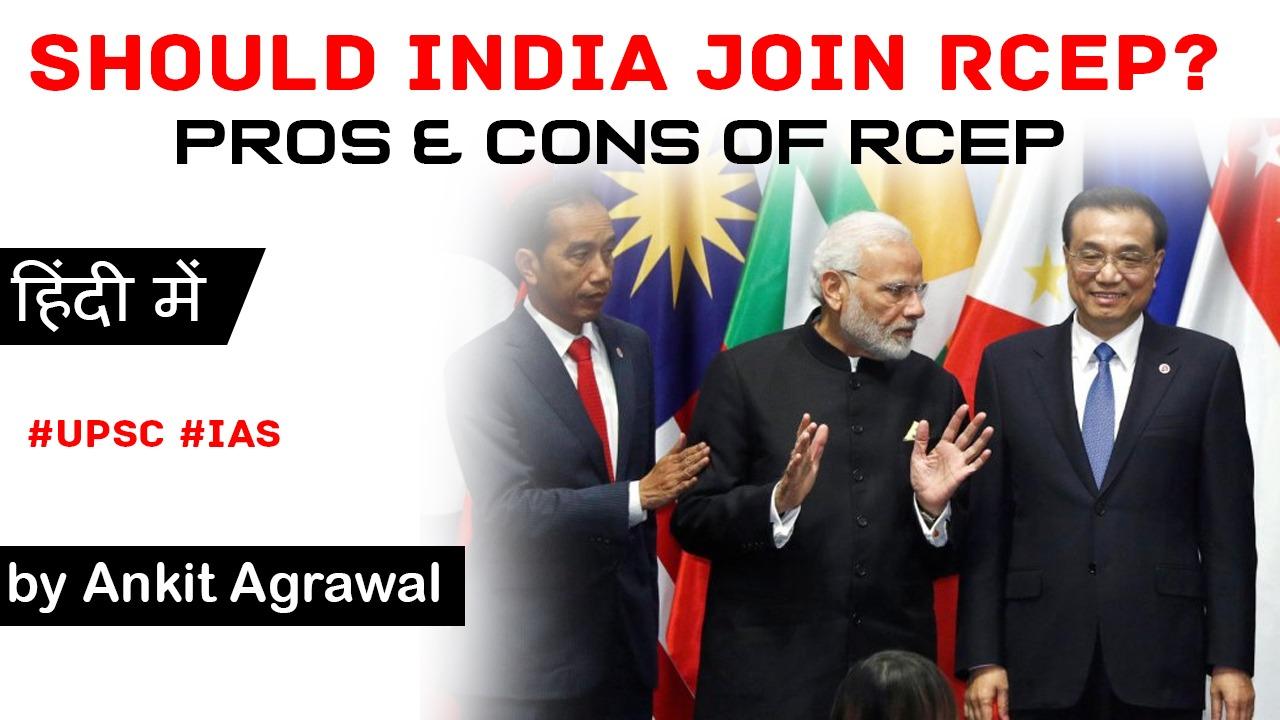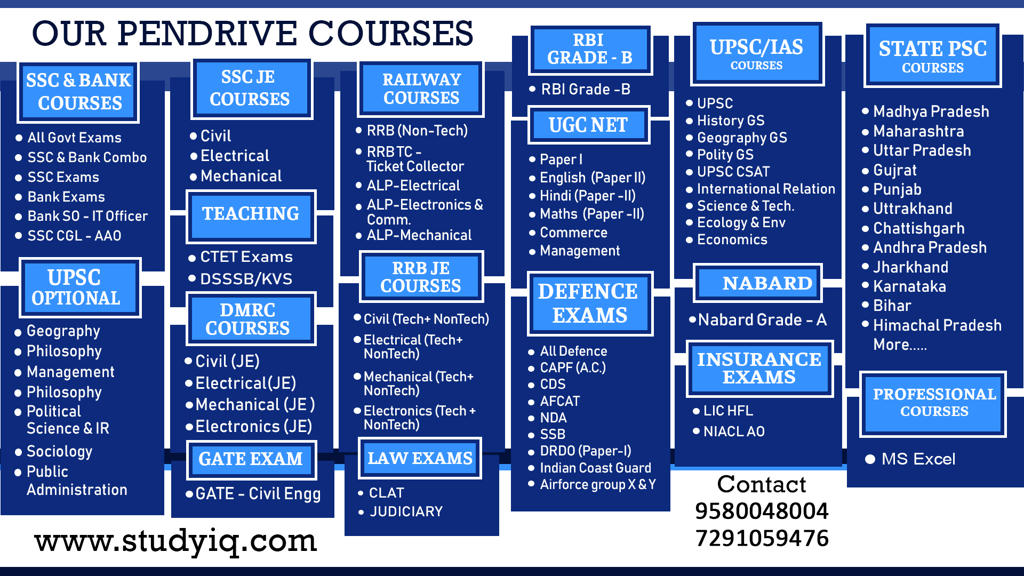Table of Contents


RCEP is a proposed Free Trade Agreement (FTA)

BACKGROUND
- The concept of the RCEP was promoted by ASEAN countries in 2011.
- But an RCEP declaration came at the ASEAN summit in Cambodia in 2012, and negotiators met for the first time in 2013.
- Six years later, the main stumbling blocks for the RCEP are the India-China trade relationship, as well as some concerns from Australia and New Zealand.
- In May 2019, China proposed a plan to conclude the negotiations without the naysayers, i.e. take the ASEAN+3 (China, Japan and South Korea).
- While leaving space for India, Australia and New Zealand to join later.
- But given the size of India’s market, the move was opposed by most in the grouping.
INTRODUCTION
- Broadly, views on RCEP are divided between two schools of thought.
- The first believes that the RCEP is vital for India as it accounts for 25% of global GDP, 30% of global trade, 26% of FDI flows, and 45% of the total population.
- The second states that India’s experience with FTAs has not been good and its trade deficit with major FTA partners has increased significantly.
HOW IT WILL BENEFIT INDIA?
- It will give India first mover’s advantage.
- India would give up the chance to frame the grouping’s rules and investment standards if it fails to join the RCEP at this stage.
- It will give boost to India’s Act east policy through reduction in trade cost.
- India enjoys a comparative advantage in the services sector such as information and communication technology, healthcare, and education services etc.
- Thus, RCEP will create opportunities for Indian companies to access new markets.
- It could enhance strategic and economic status in the Asia-Pacific region.

WHAT COULD BE NEGATIVE CONSEQUENCES OF RCEP?
- The biggest concern in the whole deal is China.
- China wants zero tariffs for over 90% tariff lines.
- However, this could see low-cost “Made in China” goods kill locally manufactured goods.
- The worst hit manufactures through RCEP could be- steel and aluminum, copper, pharmaceuticals and textile.
- It could threaten farm livelihoods, autonomy over seeds and also endangers the country’s self–sufficient dairy sector.
- India could experience a disproportionate loss of customs revenue.
- India’s experience with FTAs has not been encouraging, except for the FTA with Sri Lanka.


STRATEGY INDIA COULD ADOPT?
- First, India should continue to maintain its position of proposed dual tariff structure in the RCEP.
- Second, it must emphasise on a special and differential treatment based on stages of economic development.
- Third, India should try to evolve a framework to negotiate dumping of goods.
WAY FORWARD
- Given the costs and benefits in RCEP, it is important for India to strike a balance between domestic and external interests to minimise the adverse effects of RCEP.
- At the same time, it is equally important to grasp the possible opportunities.

Latest Burning Issues | Free PDF






















 WhatsApp
WhatsApp